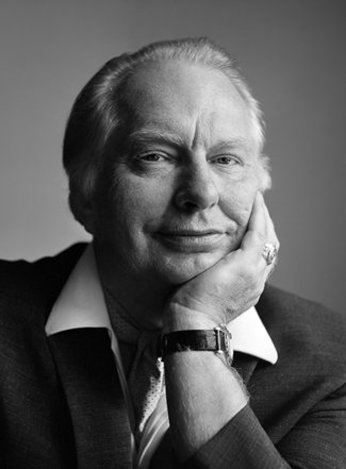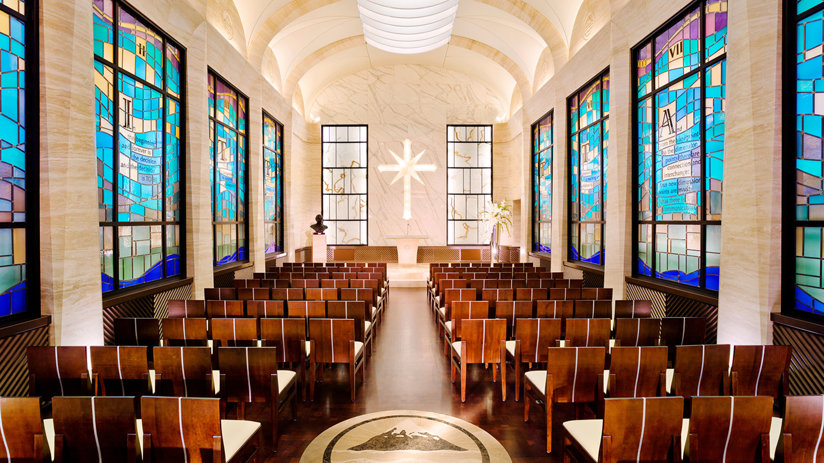
-
HOME
-
WHAT IS STANDOur Mission Our Values Our Help Contact
-
WHAT WE FIGHT FORReligious Freedom Religious Literacy Equality & Human Rights Inclusion & Respect Free Speech Responsible Journalism Corporate Accountability
-
RESOURCESExpert Studies Landmark Decisions White Papers FAQs David Miscavige Religious Freedom Resource Center Freedom of Religion & Human Rights Topic Index Priest-Penitent Privilege Islamophobia
-
HATE MONITORBiased Media Propagandists Hatemongers False Experts Hate Monitor Blog
-
NEWSROOMNews Media Watch Videos Blog
-
TAKE ACTIONCombat Hate & Discrimination Champion Freedom of Religion Demand Accountability
Scientology vs. Science Fiction
I was born in the South. There’s a kind of running joke about how someone in the South can insult you so politely you’re not even upset about it (if you even notice at all). Something along the lines of, “Bless your heart, have you gained weight? It looks so good on you I hardly noticed…”
Uh, thank you, I think?
That kind of “polite criticism” reminds me of something I’ve seen and heard sometimes when Scientology is mentioned in the press, which goes something like this:
“Scientology, founded by science fiction writer L. Ron Hubbard…”
The description is offensive, and for several reasons. First, collapsing Mr. Hubbard’s extraordinarily diverse and accomplished professional life into the three words “science fiction writer” is not only misleading in the extreme, it’s intentionally designed to cause the reader to call into question the validity and workability of Scientology itself. After all, “fiction” is right there in the job description, right?

And if Mr. Hubbard was “just a science fiction writer” then of course Scientology itself must be science fiction—an implication intended to make it and its members easy to dismiss and ridicule. How seriously can you take anyone who believes in a religion “based on science fiction”?
Of course, L. Ron Hubbard was far more than a science fiction writer and anyone who has studied even a little Scientology quickly understands it has nothing to do with science fiction. It’s an applied religious philosophy—something you actually learn and do to measurably improve your life. It’s down-to-earth in the extreme.
Yes, Mr. Hubbard was a writer, and a very successful one. He was one of the most popular pulp fiction writers during the heyday of that medium, and he was so prolific and wrote in so many different genres (science fiction being only one of many) that he had to write under multiple pen names simultaneously so publishers could publish his work as fast as he could generate it.
His insatiable curiosity about humanity coupled with his global travels (at a time when very few people did that kind of exploring) laid the foundation intellectually, artistically, and spiritually for him to follow his true passion: researching the human mind and ultimately discovering the human spirit in a way that allowed people to improve their lives in measurable ways. Mr. Hubbard’s literary income financed that research and it was his success as a writer that allowed him to operate independent of any vested interests, permitting him total freedom to explore the mind independent of preconceived ideas and agendas.

There’s also sometimes an implication that Scientology is somehow an extension of Mr. Hubbard’s professional literary career and therefore an enterprise designed for his personal profit. Any Scientologist would immediately roll their eyes on hearing that. Put very simply, Scientology works for millions of people who have applied it all around the world, which would not be true if it were born out of any other determination than a desire to truly help people.
He lived his entire life in service to others. He made it clear over and over again that the only thing he considered “different” about himself was his willingness to question everything, to never assume something was true just because the powers that be said it was.
L. Ron Hubbard was an incredibly capable person for whom making money was not only never an issue but never anything more than a means to an end which allowed him to continue his research and humanitarian work.
Having said all that, the real irony of describing him as “just a science fiction writer” is that when you really research and get to know the man, it’s actually hard to get your head around how someone could have gotten so much done in a single lifetime. The Church has conducted exhaustive research to chronicle his life and accomplishments. From barnstorming pilot and naval lieutenant to professional musician, photographer, filmmaker and master mariner, he accomplished enough to make him an objectively extraordinary person even without taking into consideration his enormous quantity of research into the mind and spirit which ultimately gave birth to the Scientology religion.
New religions are a rare thing. I grew up Christian and vividly remember the many depictions of Jesus I saw in paintings and other media. Coming from that tradition, I had no idea what to expect or think of someone like Mr. Hubbard. Did he consider himself a god or somehow different than other people?
The answer is “no.” He lived his entire life in service to others. He made it clear over and over again that the only thing he considered “different” about himself was his willingness to question everything, to never assume something was true just because the powers that be said it was. And thanks to that willingness to look and explore and question—to think and act outside the box and never stop searching for the truth—Scientology is something practiced not out of blind allegiance to anyone or anything, but because it’s truly workable, and everyone can learn and use it to improve life and the world around them.
That’s why millions of people around the world have been doing exactly that for decades.









